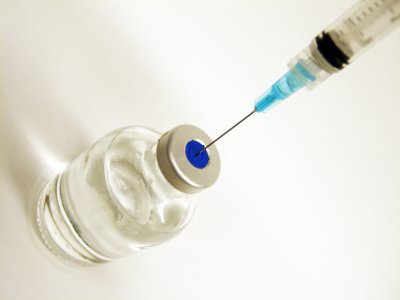300 Tested, Treated Under APHSS Program
 YNOT – Nearly 300 adult performers have been tested and received prophylactic treatment for syphilis since Aug. 22, according to adult industry health and workplace safety overseer Adult Production Health & Safety Services. The figure includes performers in Los Angeles and San Francisco, Calif., as well as Fort Lauderdale, Fla., and other locations across the U.S.
YNOT – Nearly 300 adult performers have been tested and received prophylactic treatment for syphilis since Aug. 22, according to adult industry health and workplace safety overseer Adult Production Health & Safety Services. The figure includes performers in Los Angeles and San Francisco, Calif., as well as Fort Lauderdale, Fla., and other locations across the U.S.
The treatments, which usually consist of a single antibiotic injection, are precautionary and do not indicate any of the treated performers tested positive for a sexually transmitted infection.
APHSS.org implemented a testing-and-treatment program Aug. 22 after confirming two adult performers tested positive for syphilis. Since then, the Los Angeles County Department of Public Health has confirmed nine syphilis cases in its jurisdiction, all of which LACDPH said are within the adult entertainment community. Public health officials also have said they expect more cases to arise. LACDPH has not determined point or date of origin for the syphilis outbreak, but has indicated performers may have been exposed to infection as early as April 30.
APHSS and LACDPH have reached an impasse about working together to locate and inform performers with whom the affected individuals worked prior to their diagnosis.
Free syphilis testing and treatment continue this week at APHSS-approved clinics. The protocol is designed to prevent the spread of the disease, which also has been detected in popular European capitals of adult content production including Prague and Budapest.
“We would like to thank the performers and producers for their quick response to the [APHSS exposure incident] protocols and for their cooperation,” said Diane Duke, executive director of APHSS parent organization Free Speech Coalition. “This situation might have resulted in even more serious repercussions if there was no program like APHSS to step in with protocols for follow-up care with doctors and, ultimately, testing and treatment. We are encouraged by the proactive action of performers and producers. With their support for the testing-and-treatment protocols, we have significantly minimized risk for performers.”
Because only one of the nine cases identified by LACDPH has identified himself to APHSS, Duke said the APHSS doctors network decided preventative treatment with antibiotics would minimize risk of exposure for performers.
“Because of the possibility of additional positive results from non-APHSS [testing] providers, after consulting with our team of doctors, it was clear that the only responsible course of action was to call a production moratorium and to follow that with [industry-wide] testing and treatment,” Duke said.
Danny Wylde, a performer and APHSS committee member, urged all performers to participate in the program.
“I defend the testing and treatment protocols proposed by APHSS, including the production moratorium and prophylactic antibiotic treatment,” Wylde said. “For those who rely on performing as their primary means of income, there has been no proposed alternative to the APHSS protocol that addresses both the syphilis exposure as a concern and considers the reality that performers need to make a living.
“Many performers claim to have received medical advice from their personal physician to not accept prophylactic penicillin without explicit knowledge of infection,” Wylde added. “I cannot recommend that anyone disregard advice from their doctor. However, a performer’s personal physician has not been asked to address a community health threat to the adult performer population.
“I respect one’s right to forego antibiotic treatment and wait out the 90-day incubation period for syphilis,” he said. “But to return to work without treatment, and without knowledge of who has been exposed, is dangerous.”
All performers who elected to participate in the APHSS work-ready database have been listed as “unavailable for work.” The listing will continue until at least early September, and may last until mid-November for performers who choose not to undergo prophylactic treatment. The incubation period for syphilis can be as long as 90 days.
Duke said each APHSS-listed performer who undergoes treatment will be listed as “available” 10 days later.
For more information about APHSS or the current incident protocol, visit APHSS.org, call 818-348-9373 or contact the organization by email.









